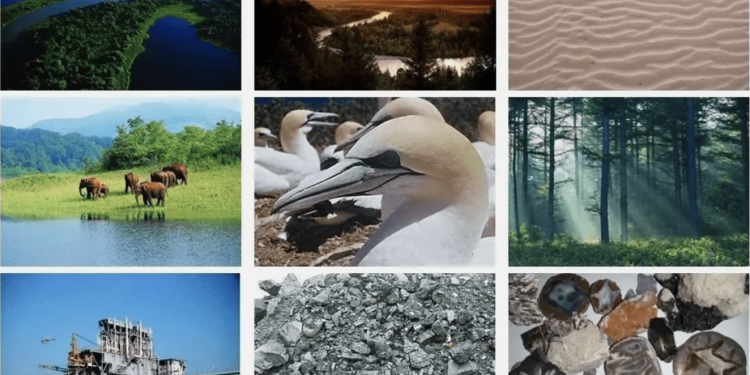Over-dependence on oil resources has led to a neglect of other natural resources in Nigeria. Even the solid mineral sector, which marches closely behind the oil and gas sector have only enjoyed scant attention. In fact, within Nigeria’s oil and gas industry, there are indications that the gas sector performs below its capacity due to insufficient attention. Most of Nigeria’s gas is flared, an action that is commonly connected to economic waste and environmental degradation.
While Nigeria’s oil sector has enjoyed the most attention, and the solid mineral and gas sectors have received only scant attention, other natural resources appear to be in total neglect. Perhaps there is only limited awareness of the potentials and value of Nigeria’s biotic resources. Remember that natural resources can be biotic or abiotic and that Nigeria’s resource wealth is not only abiotic (i.e. oil, solid minerals, etc.).
Nigeria is rich in biotic resources such as forest and wildlife resources. Although there is a paucity of information on the current size of these resources, Nigeria has about 1,733,633 hectares of forest reserves area by FAO’s estimates. At least 17 of the 36 states have sizeable forest reserves. These forest resources are of three types – lowland rain forest, freshwater swamp forest, and mangrove forest.
Nigeria also has a rich collection of wildlife resources. While some wildlife can be found in forest areas of Nigeria, the country also has a very diverse collection of wetland wildlife resources. According to FAO, the status of the wetland wildlife resources of Nigeria is not well known. They comprise aquatic birds, mammals, amphibians, and reptiles. In addition, Nigeria has over 12.5 million hectares of freshwaters that can yield about 510,000 tons of fish. Other abiotic resources endowments in Nigeria that are not so often discussed include solar energy, wind energy, and water resources.
Despite the abundance of these resources, little is known about the governance framework. There are concerns that about 26,000 hectares of forestland are destroyed annually in the rainforest zone due to development and agricultural ventures. According to the World Wildlife Fund, over 90 percent of the natural vegetation in Nigeria have been cleared and over 350,000 hectares of forest and natural vegetation are lost annually. As of 2005, Nigeria had the highest rate of deforestation in the world. Forests are being cleared for logging, timber export, subsistent agriculture, and cooking fuel.
Many of Nigeria’s wildlife resources are lost through poaching, hunting, disease, and the threat of climate change. Development and the creation of dams across rivers in the country have also resulted in the loss of some wetland wildlife species. The resultant of this loss of biodiversity is revenue loss, possible extinction of some species, environmental degradation, and a general threat to the environment and climate. Beyond these, due to Nigeria’s inability to harness the potentials of these resources and its unexplored tourism industry, significant revenue and job prospects is lost.
As global events and market reality dampen Nigeria’s revenue outlook, perhaps it is time to begin the conversation on the other natural resources. Strategies should be developed to coordinate and fully access the prospects of Nigeria’s biodiversity. The strategy should include a comprehensive framework that will guarantee revenue generation, environmental protection, and sustainability. Measures against deforestation, wildlife poaching, and other actions that pose threats to Nigeria’s biodiversity are also required. In addition, the accountability framework for these resources should be improved. This should include disclosure of revenue earnings, licensing, and reserve management.


